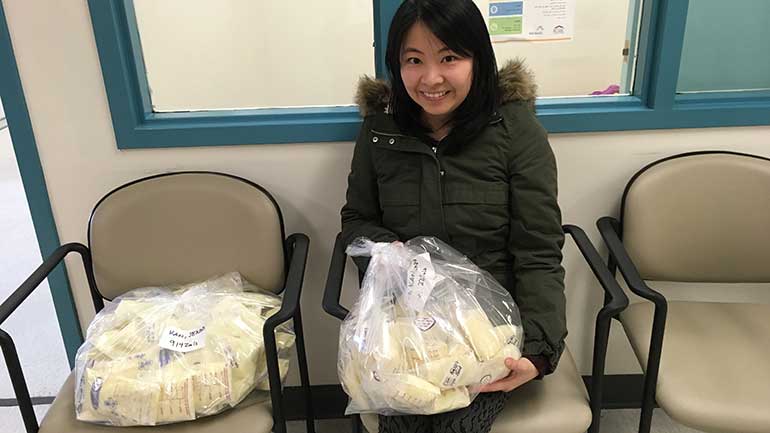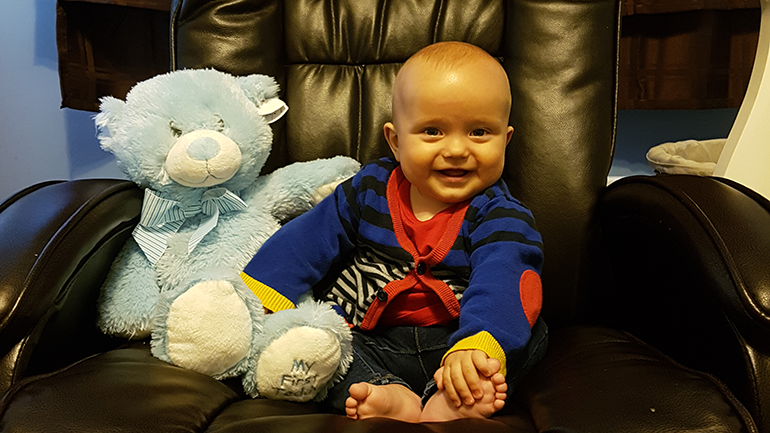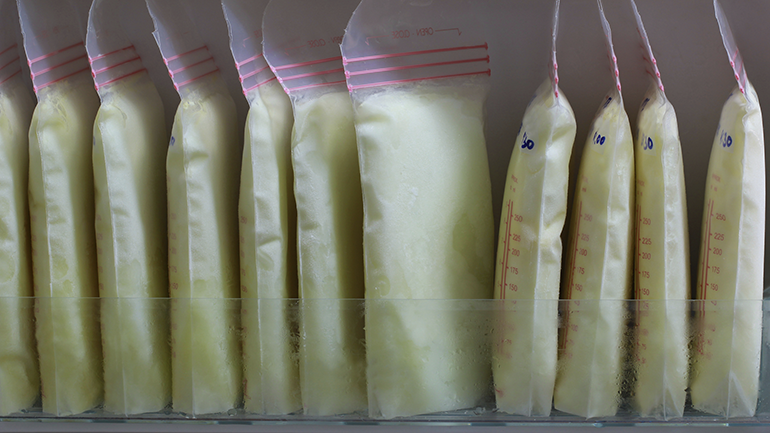Donate your breast/human milk to other babies in need.
Last updated: February 23, 2026
Sometimes a parent's own milk is not enough or not available for their baby. If a parent’s own milk is not available, the next best choice for feeding their baby is pasteurized donor human milk.
We are always in need of donors. The more donated human milk we receive, the more babies in our communities can be helped. Consider donating your own milk if you have enough for your baby.
After the screened donor milk is dropped off at a Fraser Health depot, the frozen milk is shipped to BC Women's Provincial Milk Bank. Donors' milk is pooled, pasteurized, then stored for use.
How to become a donor
You will need to be screened before becoming a donor. This involves:
- A short questionnaire over the phone or online.
- A five-minute written questionnaire.
- Having blood drawn.
- Letting us contact your family doctor.
Learn more about the screening process.
Guidelines
- Minimum donation of 150 ounces donated over a period of time.
- Milk can be stored in glass, hard plastic or bottle liners.
- Milk must be labeled with first and last name and dated with month and year collected.
- The milk can be frozen in a fridge freezer with separate door for six months or in a deep freeze for up to twelve months.
- Unfortunately, there are no pumps for loan. Donors participate on a voluntary basis.
In the sad situation where a baby dies, some birth parents choose to donate milk in honour of their child. We accept milk from bereaved donors. Any amount of appropriately stored milk is accepted, assuming the donor has completed the screening process.
Resources
Where to drop off your milk
View a listing of locations to drop off your donor milk. Please call your local milk depot to confirm you are a qualified, screened donor before you drop off your milk.
How to get donor milk
Pasteurized donor milk is available by doctor's prescription and is prioritized for children with the greatest need. Find out more on how to receive donor milk.
Help babies in need
Demand always exceeds supply for donor milk. Donate milk to the BC Provincial Milk Bank.
Informal milk sharing
Fraser Health’s position on informal milk sharing is one that echoes Health Canada and the Canadian Pediatric Society’s statements whereby we do not support or endorse informal milk sharing due to the many risks associated with these activities. Unscreened milk has been found to contain contaminants such as medications and can pose an infection risk.
We recommend the following feeding choices:
- Parent's own milk as the first choice
- Pasteurized donor milk when available as the second choice
- Commercial formula as the third choice
Resources




